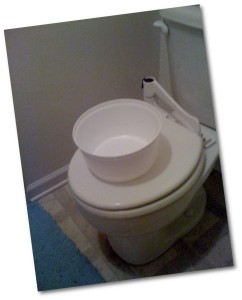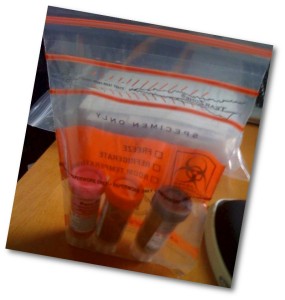My friend Dr Peter K. Embarek, senior scientist with the Department of Food Safety and Zoonoses (animal diseases which can be communicated to humans) at the World Health Organisation (WHO) and head of the International Food Safety Authorities Network (Infosan) Management of WHO, was in Dubai recently to attend the ninth Dubai International Food Safety Conference. Sajila Saseendran spoke to him about food safety in Dubai and elsewhere.
 What are your recommendations after attending the sessions and the symposium for health professionals in Dubai at the conference?
What are your recommendations after attending the sessions and the symposium for health professionals in Dubai at the conference?
We need to be much better at detecting cases of foodborne diseases and there, everybody has a role to play, especially the customers.
Each time they suffer from either diarrhoea or typical food poisoning symptoms, they should not be afraid to go to the doctor or the hospital and report it. Maybe for them, it is not important. They will recover quickly and forget about it. But it might be part of large outbreaks. If we don’t detect single cases, we will never figure out if there was an outbreak involving many people.
We can only find out (outbreaks) if people come forward with their cases…. For the time being, we have not enough of that basic information (from patients and hospitals). And therefore, on the food side, we try to prevent everything. But we are not very focused. All the work done to make our food supply safer could be much more efficient if we had a better understanding of the disease side of it.
Does surveillance play an important role?
Yes. Surveillance and prevention should work much closer, exchange information and data so we can understand and prevent better the real risks from the perceived risks.
In Dubai, the surveillance developed by the Dubai Municipality and DHA has had positive results. But there are gaps in reporting, testing and diagnosis. What are your comments?
Worldwide, many of the bugs that are making us sick are difficult to cultivate or detect (in lab tests). Often we don’t have good methods to detect them. We only know a few of them and are capable of detecting them easily.
Therefore we should not wait until we get a laboratory result. We should start reporting based on symptoms. Then we can go back and figure out the source of the disease…. Sometimes it is easier to pick up the bacteria or viruses from the food. Therefore it is important not to wait until the lab results, but already based on the symptoms start reporting immediately.
 We have heard of many doctors haphazardly diagnosing cases of diarrhoea and vomiting as food poisoning. Also, we have had fatal cases of pesticide poisoning which were treated as food poisoning. How do you balance between starting symptomatic treatment and avoiding misdiagnosis?
We have heard of many doctors haphazardly diagnosing cases of diarrhoea and vomiting as food poisoning. Also, we have had fatal cases of pesticide poisoning which were treated as food poisoning. How do you balance between starting symptomatic treatment and avoiding misdiagnosis?
For that we have to change the minds of the doctors and nurses who are trained to treat patients. They are not trained to prevent diseases. On the other hand, we, the food safety professionals, are trained to prevent foodborne disease and food poisoning. We have to reconcile these two different philosophies and sensitise and explain to the medical sector — the doctors and nurses — why it is important to report the cases immediately.
Their role is to treat the patients. They should also understand it is important to prevent future cases. A lot of things can be done if they start giving us the figures. Then we can start investigation and understand what the problems on the food side are and fix them.
The Dubai International Food Safety conference heard that many doctors here are reluctant to ask for stool tests. How big a problem is it? What should be the yardstick?
I can understand that in many cases they think that it is not wise to do stool test because by the time they get the response from the lab, the person would have recovered and gone home. Then, it will not be used to define the treatment.
I think the tendency is to do the stool testing when the case is very severe, or lasts for many days and cannot disappear by itself. Then they need to find the source (through lab test). But it is still important for them to do that (stool test) on a more routine basis.
So we can find out how many cases of salmonella poisoning or campylobacter poisoning we have or whatever else is behind the cases and get a much more detailed picture of the different causes. The change in attitude in sensing the need for testing is more important.
How do you analyse the foodborne diseases surveillance system in Dubai?
Everything is very fast here in Dubai, including the development of foodborne disease surveillance and the improvement of food safety. I think Dubai has embarked on a very positive trend. All efforts made during the conferences are proving that Dubai is on the right track. I am very confident that we will see a much more robust system developing here in the coming years.
What has been done is very impressive on the education and training sides. But we have to move on, which is to make it a more scientific and informed system. And there, we need data, we need data, and we need data. That will come from the industry and inspection services on the food side. But that should also come from the disease side.
How important is food safety for Dubai considering the fact that it is a hub linking the East and the West?
Both Dubai and Abu Dhabi are two big hubs where a lot of people are moving in and out of the country and going to the rest of the world. A big factor is that you also have major airlines that are flying across the globe. So, of course, there is the risk that an outbreak starts here and people take it with them to somewhere else.
You can also have it the other way round that somebody brings it here and fall sick here but the source is not here, but in his or her country. That is why it is so important to link Dubai and Abu Dhabi and the other agencies in the emirates with the rest of the world … so they can work together and share data.
It (Dubai) is becoming a global village. Both people and the food are moving all over the place and you cannot pretend to develop a very nice system for Dubai alone.
How closely are you working with Dubai and Abu Dhabi with regards to Infosan?
Very well! As you know, we have them as members of the network. In 2010, Abu Dhabi hosted the first global meet of all the members of the Infosan network. The agenda was to develop the network for the coming years. This year, the network is celebrating its 10th anniversary. We are trying to organise another global meeting of all the members very soon.
With Ebola, we are not seeing many reports about Mers, except for a few from Saudi Arabia. What do think about the implications of Mers here? Is it still a threat?
Absolutely! It is still a threat. We are seeing a lot of cases again since the end of summer in the region. We have also some hospital outbreaks in Saudi Arabia. We haven’t found the way to avoid people getting infected in the first place. We know that camels are playing a role. But, we don’t know exactly how people get infected There are several other uncertainties. So, we need to work on all these issues.
